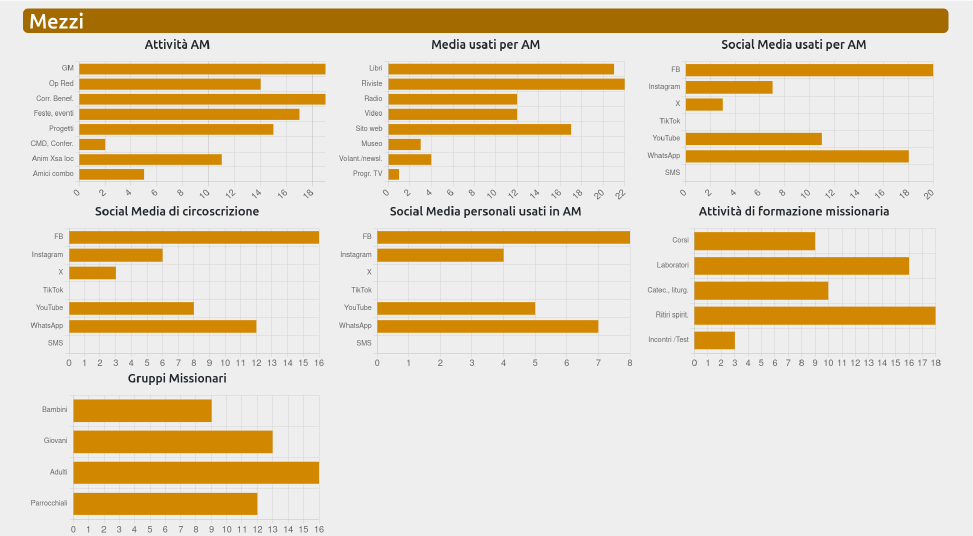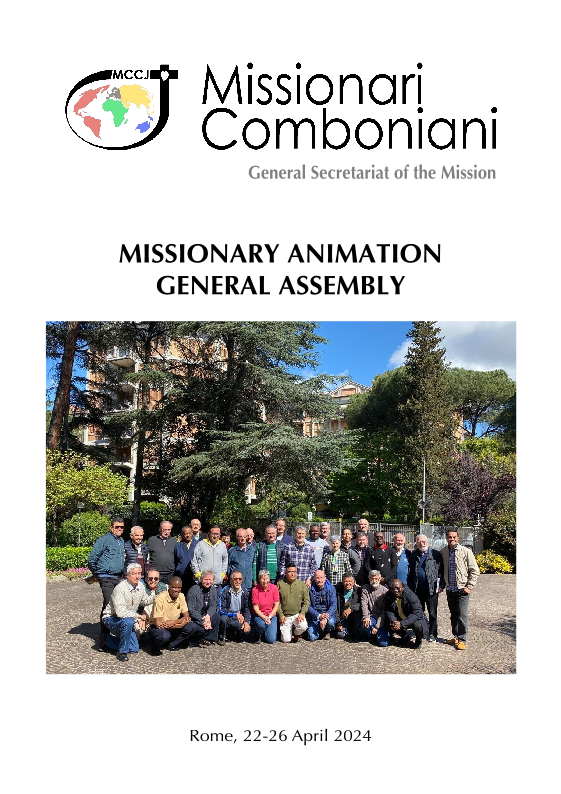Mission never happens by chance nor does it come about simply as fruit of a careful planning for we do believe that mission does not belong to us but to our missionary God who, through the Holy Spirit, continues to inspire, impel and make fruitful our various missionary works. And so, on January 4, 1988 the Comboni Missionaries set foot in the Far East – in the Philippines, 33 years ago. A humble beginning in a continent that is home to the largest portion of humanity. The seed was planted in this numerous archipelago of Islands, the Philippines, which is currently celebrating its 500th anniversary of the arrival of Christianity on its shores.
OUR FOCUS
The eagerness to listen and follow the impetus of the Spirit, led to the audacity of establishing a Comboni presence in Macau (China) on January 6, 1992 and ten years later, in 2002, in Taipei – Taiwan. Two strategic positions to open horizons towards Mainland China. Without delay, a special outreach inside China was formalized in 1999 under the name of Fen Xiang (sharing, in Chinese). And, with the blowing of the Spirit, just 6 years ago, the Comboni Missionaries set foot in Vietnam on July 26, 2015.
As disciples of the Lord, under the inspiration of St. Daniel Comboni, we focus our missionary service in two main areas: in the Philippines and Vietnam, we have been working on Missionary Animation, Vocation Promotion and Basic Formation while in the “China Mission” (Macau and Taiwan), we focus on First Evangelization, Gospel proclamation, faith formation and accompaniment of those in the Catechumenate, while carrying on some pastoral works. Overall, we prioritize a spirit of close collaboration with the Local Church. While remaining still a small group of missionaries dispersed in various fronts of mission, there is great commitment and enthusiasm to carry on our various works giving visibility also to the passion of St. Daniel Comboni for spreading the faith and to serve the poorest, both materially and spiritually speaking.

Asia and its people, as the milieu of our missionary endeavor, presents multiple challenges at all levels – social, political, religious… But there are three fundamental truths / facts that we must have present as missionaries in this continent. First of all, we should never forget that Asia is people! It comprises over 60% of the human race; nearly two thirds of the world population and 15% of the planet’s land surface. Secondly, Asia is religion! We know it is the birth place and home of nearly all the scripture religions of the world (Judaism, Christianity and Islam originated in West Asia; Hinduism, Buddhism, Jainism and Sikhism came to birth in South Asia; Confucianism, Taoism and Shintoism belong to East Asia; this not to mention the primal religions of indigenous groups which abound. Christians comprise only about 2% of Asia’s population and half of them are in the Philippines. This variety comprises a great spiritual richness but also the challenge for interreligious dialogue, peaceful coexistence and collaboration. Often, conflicts are still present and constitute a damaging scandal. Moreover, it calls us to be courageous witnesses to the faith we profess, believe and live in our day to day life. Lastly, Asia contains a vast mass of people who are also economically poor. The great divide poor/rich is a permanent scandal and the rift between the two seems to be widening at a fast pace.
TAKING THE ASIAN REALITY TO HEART
Conscious and grateful for the missionary paths the Church in its varied groups has already taken in Asia, we know that our contribution, though small, has an important part to play in the richness of our Comboni charism focused on the evangelization and mission animation of the already existing Church forces. We firmly believe that mission begins with a sincere love for Asia and its peoples in a vast array of cultures and languages. With the desire to take the Asian reality to heart, we feel that mission in these lands call us to be open, attentive and responsive, by being close to the people, engaging with them with deep appreciation and respect, looking at Asian’s people’s history and reality as the fertile ground where God calls us to be sowers more by personal witness than by words. We know that God has preceded all missionaries, and it helps us to think of the Risen Christ who goes ahead of the Apostles to Galilee (Mk. 16:7) fully knowing that we are mere instruments and that He continues to be active in diverse ways, leading and guiding His people in varied manners.
More than doers, Asia calls us to embrace a mission of solidarity with its poor, and actively participate in the movements to alleviate their struggle for food, work, freedom and basic human dignity. Here the eco of St. Comboni’s love for the poor and his relentless efforts to reach out to them inspire us not to give up in the face of so many destructive forces, such as massive corruption, active persecution of the church, abuse and exploitation of workers and oppression of the poor just to mention a few among others. No, in our passion for mission, we refuse to give up and persist in standing by those who suffer, even if, at times, simply by surrendering all to the Lord in prayer. Yes, here, the mission of contemplation and prayer is crucial to cope with the demands of the journey.
LEARNING WITH THE ROSE
Though we find many obstacles due to corrupt and abusive political regimes, corrupt economic interests and even our own failings, we do not shy away from the main focus of presenting the Gospel embodied in life-witness. Here the very Gospel symbols help us to understand ourselves in this concrete context of Asia: we are called to be “light, salt, yeast, fragrance” (cf. Mt. 5:13-16; 13:33; cf. 2 Cor. 2:14-16). The well known Indian Guru Mahatma Gandhi, whose teaching inspired many to look to him for wisdom and guidance, is reported to have advised a group of Christian missionaries saying: “You talk too much. Look at the rose. It too has a gospel to spread. It does it silently, but effectively, and people come to it with joy. Imitate the rose!” What a powerful and adequate recommendation for missionaries probably everywhere but, certainly most appropriate in this Asian milieu where mission is about patient sowing without pretentions of quick results. A mission that truly calls for conversion of minds and hearts fully believing that God, our missionary God is in control, we are not! Though challenging, such an approach is also liberating, giving us the freedom to find great joy in simply being sowers, simply “giving for free what we have received for free” (cf Mt. 10:8).

Mission in these lands is far from being accomplished. The laborers are still few but we trust the Lord to stir up in the young Asians the passion and the generosity to serve in this great continent and across continents in the ad gentes mission, inspired in the same passion and zeal of St. Comboni whose heart was once, at a very young age, captured by the martyrs of Japan.
By Fr. David Domingues, mccj





